Worldschooling Spotlight
Meet the De Santi Family
Worldschooling Spotlight
Get to Know the De Santi Family
Meet Sarah De Santi, who, along with her husband and three children accidentally began worldschooing in 2018!
After visiting an island in Thailand, her kids announced that they wanted to see more. Sarah and her husband misunderstood their meaning and thought they meant more of the world, so they made the decision to sell up and begin worldschooling. Later they realized the children meant more of Thailand, but acknowledge it was a wonderful mistake, as they’ve fully embraced the Worldschooling lifestyle and are loving every minute. Like many families, Sarah and her husband initially struggled to find their groove – carting heavy text books around the world to educate the children, which did little more than cause arguments. But it didn’t take long to find what worked for them and Sarah shares all in this interview.
INTRODUCE YOURSELF
We are from Italy; we were there until 2010. Then we sold everything, my husband and I, and our two very young children, and we moved to the States for eight years. After eight years, we were done with the States; we sold everything and decided to travel the world. At that point, we had three kids. So our kids now are four, nine, and almost ten and almost 11.
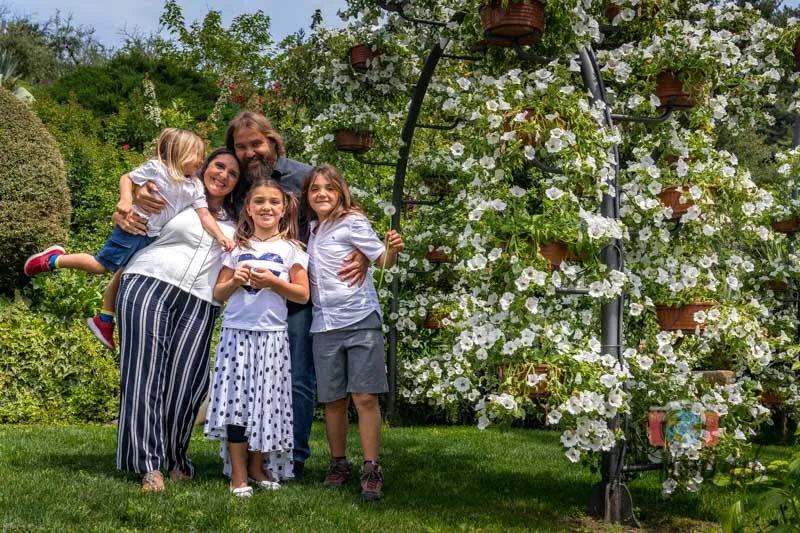
When did you start world schooling?
We’ve been world schooling for 22 months. It started as a 12-month thing, just to see the world, but we like it, and we will travel full-time for a while until we get tired of it, and then we will stop.
Click here to learn more about Worldschooling!
Why did you start world schooling?
We decided to start worldschooling during a short trip to Thailand. While we were there, we visited an island for the weekend, and our kids said we would like to see more. So we thought it meant, more of the world. So my husband said, “Oh, why don’t we just sell everything and leave? Let’s do it.” I think they just meant that they wanted to see more of Thailand, but that’s okay!
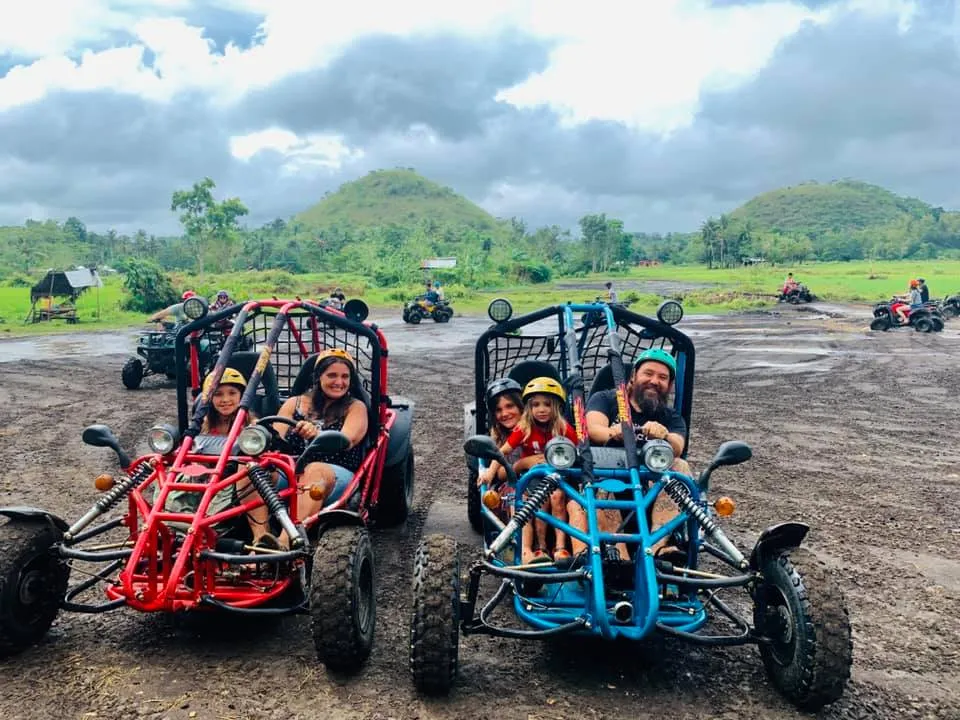
Where have your adventures taken you?
When we started, we did Bali, Australia, New Zealand, Singapore, Bhutan twice. Thailand three times. India, South Africa, Kenya, Zambia, Morocco, Iceland, Ireland, England, Spain, France, and the Bahamas. I think I’m missing something. Oh, the Philippines, and Nepal. I still think I’m missing something else. We’re over 25 countries. One of our Favorites was Bhutan because it was unexpected. Bhutan and Morocco were our favorites, but Bhutan, in particular, was a surprise because it’s still very traditional, and you don’t see that in a lot of countries. In Bhutan, you can still see a lot of their traditions, their outfits, and how people live in the villages. Everybody has a phone there, so it’s not going to last long. But they still have a King, and they love the King, and it’s just a beautiful culture to explore.
Morocco because when we went there, we were coming from Italy where the Moroccan people don’t have the best reputation, just because of the Moroccans that came to Italy and we had our misconception about them. Then we went there, and we just loved the country; it’s stunning; it’s one surprise after the other, and the people are exquisite. So we grew up thinking the wrong things about places, and this allows us to overcome all our misconceptions about countries and communities and people. It’s great for our kids because they don’t have those ideas that we unfortunately had.
What is your definition of world schooling?
I see it as taking the world as your school, as your classroom. Where you take every experience of your day in a new country, as a learning experience.
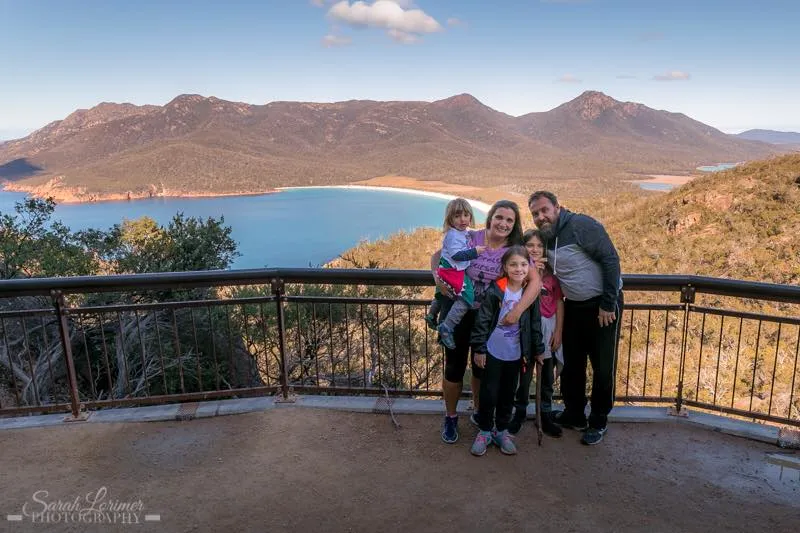
How do your kids learn?
Sometimes our kids do online programs, but not all the time. When we started, we would do these little cooking classes in different countries. We make videos about it now. It’s funny to see how people are different depending on where they are, so we did the cooking in Bhutan, and one of the first lessons we did was in this homestay, so the host sat on the floor. They made momos, which are dumplings, with my kids, and my kids couldn’t understand a word; the guide was translating, but he was just helping them, and they were just fascinated. I was so happy I made a video that I think is going to be uploaded soon. Just because it was so different, then we went to where we are now, Nepal.
Now in this hotel were we are staying, they offer to do cooking classes as well, and although the chef was awesome, and it was fascinating, he had a hard time letting the kids try because of my daughter. The men do everything there. It’s interesting how the kids learn because they will learn about the different things they cook and the spices they use, but at the same time, I am seeing how people behave differently.
Sometimes we think that we just learn in school, the truth is that every day, everybody has a different way of learning. Everybody, all of us remember different things on the same day. Still, we’re always learning something, and you’re not wasting your day because you went to a cooking class or to hike instead of staying on your books in school.
What was life like before you started world schooling?
So when we moved to the States, the idea was to have a better lifestyle. Because in Italy, we had to work so much more to earn the same, and it was just challenging. We had this idea of having at least three kids, so we didn’t want to give up on our dreams for our family.
We went to the States, and it was good. My husband is an acupuncturist and was teaching in school and doing his private practice. And I’m a photographer. So we were doing fine. We had a nice big house with a backyard – it didn’t cost that much because Arizona was pretty cheap plus we moved at the right time because after the market crashed, we got a really good deal. Our kids were in a school they loved – so everything was fine.
Then we had our third child; everything was perfect, and then suddenly, it wasn’t perfect anymore.
I guess it was a little bit difficult at the beginning when we started thinking, oh, I’m giving up all this and then we realized we didn’t need all this. So it wasn’t better before. It’s better now. We know our kids better now than we knew them before. We had everything, but then we didn’t have time. We weren’t enjoying our time together.

How did you discover world schooling?
I don’t remember when I started. It was on Facebook. I was looking up stuff for homeschooling, I guess. I don’t even remember. I stumbled on this Worldschooling page, and I started looking up questions, and because we had started planning our trip, I would ask dumb questions, but there was always somebody willing to answer.
Before you started, what questions or fears did you have about world schooling?
In the beginning, because it was just a one-year thing, it was technical questions like, how long should I stay in this country? Or, basic questions like, does Australia have different power plugs? At the time, they were basic questions.
Then once we started worldschooling, it was the big questions, like, how do you school your kids? Because clearly, what we were doing was not working. We were fighting every day, and I was very insecure at the beginning about the timing of how long should we stay in one country or another one? How much should we see? I believe we were thinking more like tourists than travelers. So the need to kind of squeeze in as much as we could because we thought it was a one-year thing, and so we didn’t want to miss out on anything. We probably squeezed too many countries in, and we didn’t enjoy them to the fullest, but the main questions were technical.

What were your initial plans for educating your children?
Everybody has a family behind them that says, Oh, your kids, you are going to ruin them. Oh, they’re out of school, they’re going to be behind. So to make everybody feel comfortable, we decided to say this was only for six months. One of the teachers at the school offered to check in on them every few weeks, and she gave us the books from their school for their next year. We just left and took a few weeks off because when we left there, it was summer vacation, and so basically, when we were in Bali, we just enjoyed it.
Then we went to Australia and the torture started, because we had to start doing some schooling. We had these books, and we would open the books and start following the text. But then we found out from our kids that they didn’t do everything in the book, they kind of did other stuff. So we weren’t sure what to do.
The kids continued comparing our learning with school. We did this in school, and we did that, but we were not at school anymore. We were doing this thing, and we didn’t even think about the concept of unschooling. So, for us, because we had this guilt from our parents, we had to make sure that they were learning.
Have those plans changed as you traveled more?
One night, we were two months into our trip, and we were struggling with the homeschooling thing. We had huge fights every day. Our kids were frustrated because we didn’t get it. Because we didn’t understand how they were learning with their books. We had horrible Wi-Fi because we were unprepared. and we didn’t know that you can buy those mobile Wi-Fi things that you put your SIM card into. We had no clue. Some things you just learn as you travel, so we were relying on the Wi-Fi from the different campsites, which is awful and horrible. Or we would park outside of a grocery store and use their Wi-Fi. So it was challenging.
Also, there was a teacher who was going to help us, and she disappeared. So we were like, oh my gosh, how do we do this? And I was really in crisis. So I just wrote in this group on Facebook to see what they’d say. There were a million responses in 20 minutes, and I didn’t even have enough Wi-Fi to read them because it wasn’t working, so the next day, I was blown away. I thought, oh, so I’m not doing it wrong, we’re not ruining our kids! When you have that problem, everybody says you’re destroying your kids’ future, so it’s hard for the first two months.
I always tell people that it’s challenging because you have to unschool yourself before you can help your kids. So from there, we needed to understand this better, and now we’re hooked. We’re okay now, we get it, and we can do it.
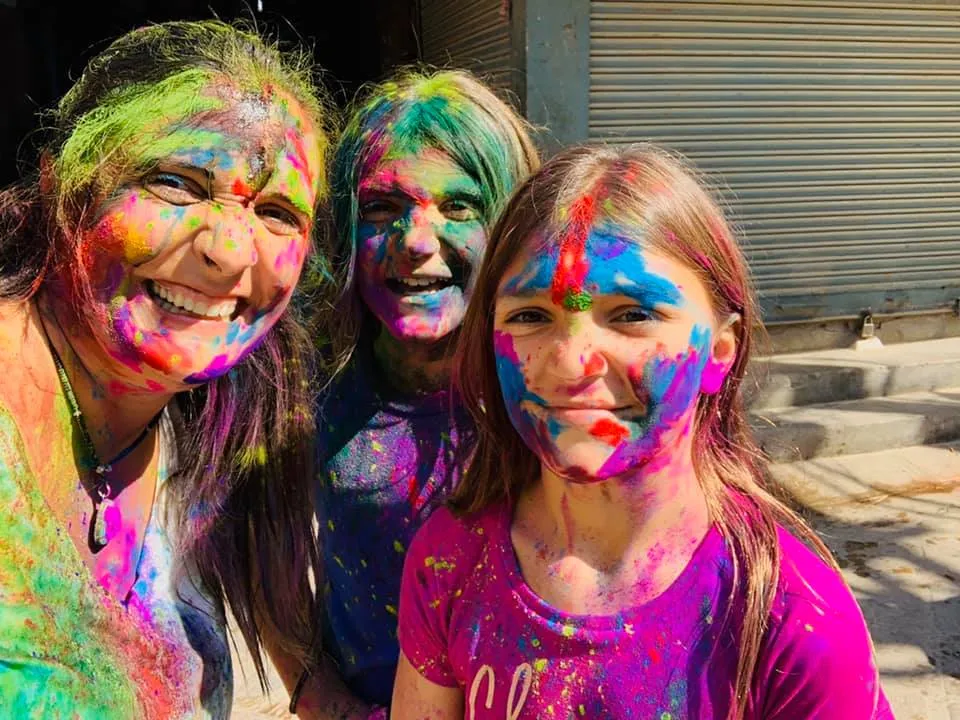
What are some of your favorite tools that you use to support your kids’ learning?
We started using Khan Academy for math, spelling, and vocabulary for English. One of my sons likes Khan Academy; however, my daughter, not as much because it’s a little too technical for her. She likes the little cartoonish things more, she “gets” that more, so they have different ways of learning.
So then I thought maybe we should find something that has everything in it, so it’s the same style. After a few months, someone posted about Time for Learning, which is a website, and we did that. Now I think we’ll change again because we’ve been traveling a lot, and because we’ve seen a lot of things we haven’t had the time every day to do homework. And so I think we need to evolve again. So we’re in the process of figuring out a new way for this moment, but for now, at least, it’s been working decently; they like it.
How did friends and family react when you started world schooling?
We had some friends that were awesome. Most of the teachers at school said it’s the best thing we could do for the kids, but our parents were having a hard time because of my mother.
We were living in the States. And my mother moved there, so she was sad, and a little worried. The other grandparents live in Italy. They were concerned too, but then they were probably hoping that maybe we would move back to Italy at one point.
We also had comments from some people that were a little disappointing. You’re going to ruin your kids. You have everything, and you’re throwing everything away, and then you have to start over. But honestly, I don’t listen to them anymore. It was hard at the beginning, but then we’re a strong couple. So it doesn’t faze us that much, we talk it through, we think we want to do this, so we’re going to do it.
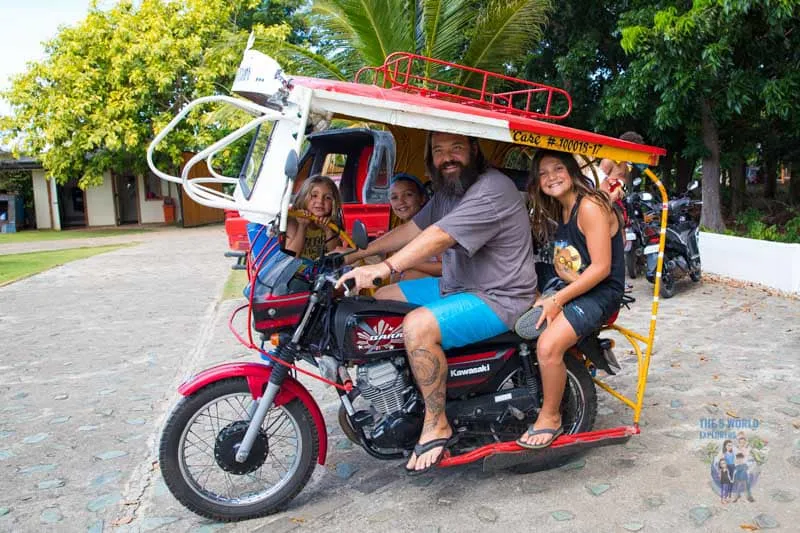
Looking back, did they need to worry?
Honestly, after 22 months, it doesn’t bother me anymore. And some people still have their idea. And we have negative comments on our Facebook page at times. But this is our choice, and we’re happy with it. We’re proud of what we decided to do, and everybody has their free will. And this is what we decided.
What impact has worldschooling had on your family?
We realized that everybody was so busy doing their activities. They would go to school all day, and then they would get out of school and have gym and swimming, and then they had dance, and we would get to see them at night. Then at night, they would watch something on tv and then have dinner and go to bed. And we would start over the next day.
When we spend time together, that’s when you learn who your kids are and their reactions to things.

What are some of the challenges you’ve faced?
Once we evolved and started to let go of all these things, like; we have to read this book, we have to do this; we have to do that. Then I think our relationship kind of relaxed and adjusted to the new lifestyle. So we still have our moments, my husband and I. They should do more. Are they learning? Oh my gosh! I mostly think it’s when we talk to other people that say, Oh, your kids are not in school, that we start to doubt ourselves. Otherwise, we see that they’re learning, my son used to hate reading, and now he doesn’t want to read books that are shorter than 300 or 400 pages. He reads Harry Potter and the longest book, which is 800 pages, he read in three days. So I am not concerned.
What does a normal world schooling day look like for your family?
So the average day right now, let’s say in the last five weeks – we have been on tours. You can’t visit Butan without a guide and a driver, so we were on a tour. Because we had already been there, we were more into learning about the communities, the villages, the people, but we were still on tour, so we still had a schedule, so we didn’t do any of our Time for Learning. We just did what we had to do that day.
Before that, we were in Thailand and the Philippines. The Philippines was a bit more challenging because it was harder to be in an Airbnb, but usually, we tried to get up, around eight. And our idea was to try to do some learning on one of the websites. We just asked one hour of them because our kids, their attention span for learning is 20 minutes. And so there’s no point staying on it for three hours.
So we ask them for an hour, and then sometimes it’s a little bit longer, sometimes it isn’t. And then we’ll go out. So we never go out before 11 or 11:30 am. And when we go out. In Thailand, we knew there was a long neck community. And we said, let’s see them. And so we just went there, and we didn’t make a plan. We just got there and just walked around, and then maybe we’ll find something else and do something else. Sometimes there are some things we have to do early in the morning. Then our plans change, or we skip the time for learning.
The other day we took a plane, and we went to Mount Everest. So we got up at 4.45 am. After that, our day was screwed up, because we were so sleepy that we were not going to force anything else. I think that was enough of an experience. We try not to be touristy that much. So if there is something worth seeing, we’re going to go and see it. But we’re not going to go crazy about it. If we can manage it, we do it; otherwise, it’s fine. It’s better to be in a place, and see what they eat, and get a feel for the people that live there. And we love grocery stores because it’s so fascinating. So, that’s kind of our day.
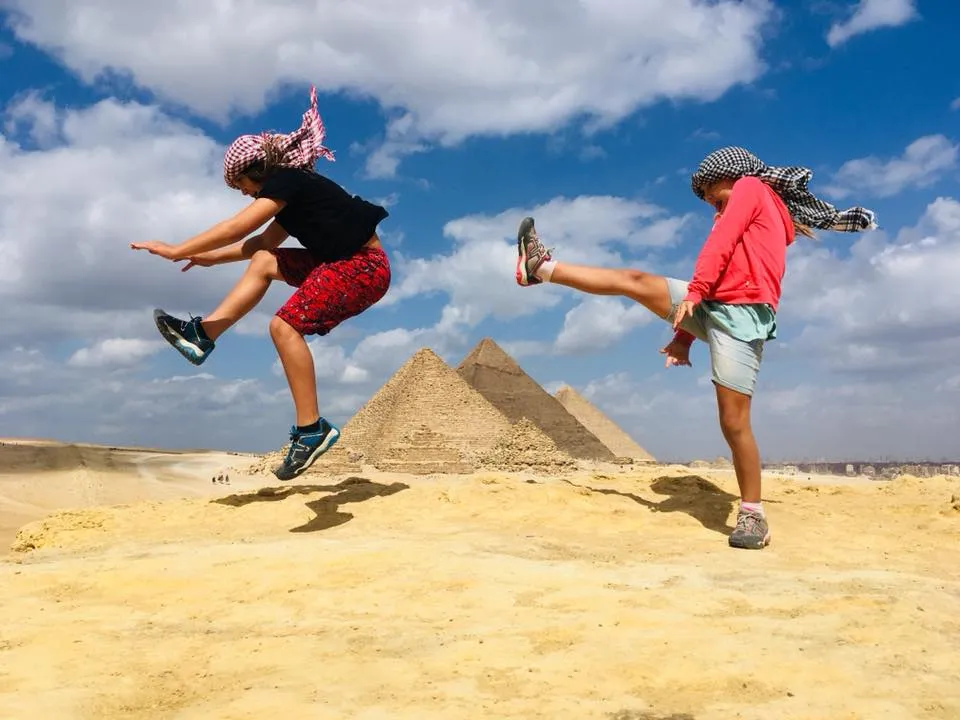
What does it cost to Worldschool?
We’ve realized that it’s been cheaper traveling than staying in the States. We lived in Arizona, so it wasn’t the most expensive part of America, but it’s just the cost of things. You go to the doctor; we didn’t have health insurance because it was crazy, ridiculously expensive, and we’re all healthy. So we would just pay out of pocket when we had to go. We just went for a checkup for the kids every year. We didn’t do anything else. A couple of times, in the beginning, we had insurance, and although we had insurance, they kept sending us the bills, which was such a struggle, and it was ridiculous. If you put that in the mixture of everything you’re paying, it’s a lot of money every month.
Our kids went to gymnastics and to dance, and while we didn’t pay for school, you had all kinds of little things. The main thing is that you just spend money; because the US is a country where you only spend money. You always want something more, and although when we moved from Italy, we thought we were not going to do this, and we’re not going to do that, we’re not that kind of people. But you end up being that kind of person because you’re bored. You have everything and don’t know what to do. And so you go for a walk to Walmart or Target, and you end up coming home with bags full of stuff that you don’t need. So that’s a lot of money that we save because we buy clothes when they rip, and when they’re completely stained. And sometimes we go crazy a little bit, but then a suitcase becomes too much, we ship it to my mother. So we save a lot of money, and we see many places.
How do you afford to Worldschool?
How do we afford to Worldschool? We had a home in Italy that we sold. It wasn’t the best time to sell, but by moving to the States at that time, the Euro was stronger than the dollar, so we had a great exchange rate. And then we bought a house that was very big and very cheap. And when we sold it, it had doubled in value. So we’re still traveling with our money from our home. And we haven’t spent even half of it yet. So we have plenty.
Also, at the time when we moved to the States with the value of the Euro being so high, we were able to make an investment and buy a home that we rent out. It’s not an Airbnb; we do regular rent because that’s the best thing to do. So we’re kind of safe, let’s say because we have our money invested. So it’s okay. So that’s how we do it. We have a blog, and we want to monetize that a little bit. I’m going to start selling photography on it. We travel, and I do some photography, but if we did only that, it wouldn’t be enough income, so it’s mainly our savings. Let’s put it that way.

What is your monthly budget for Worldschooling?
The countries we’ve been to are so different in prices that it’s tough to say. Because we’ve been traveling, fast travel, for now, our budget is mainly on accommodation. We try not to spend more than $100 a night, which is pushing it. We’ve had countries where we managed to pay $50, and in Iceland, we spent $170. So we try to move out around the world in a balanced way where we can spend a little more in one place and less in another.
What tips and tricks do you have to save money while you’re traveling?
We cook at home most of the time, except now; we’re stuck in hotels for a few weeks. We don’t like to go out at night unless we have to, also if we’re in a hotel, we try to eat at the hotel, because everybody’s tired. We don’t spend too much on eating, and we don’t do all the sightseeing unless it’s a smart way of doing it. When we were in Dubai, they had those buses that go around, and they gave us a ridiculously cheap price for seven days. We didn’t need seven days, but it was the best way to get around the city because it’s huge. So we’ll do some of those things sometimes.

What qualities do you think your children have developed because of world schooling?
They are so good at connecting with adults, with kids, with everybody. They’re just used to it. They’re not always in front of a phone, talking, playing, and doing everything on the phone. They like social relationships with people. And this is all because of Worldschooling. When you see a group of Worldschoolers together, you can tell they’re Worldschoolers, because all they want to do is play or interact. They’re more curious. They ask a lot of questions. My oldest will, if he likes the guide, like one of the guides we had in Bhutan, he will talk to him all day, asking him a billion questions. My daughter is very shy, but she’s getting out more. At the same time we can see when she’s not comfortable with people, she’ll come and tell us, but you can see the way she behaves. And I think it’s also due to learning how you have to be around people. And our youngest is just fearless, in a good way. We’ve seen this big evolution in the past six months; he taught himself to swim. He just jumped in and started swimming. He wasn’t complaining; he was scared for a fraction of a second; then, we let him go by himself, and we all yelled go, go, go, go, and he was happy.
A few weeks ago, in Bhutan, he went horseback riding by himself. We did a horse trek for three days. And he was doing it by himself; there was a guy that was there to pull the horse and make sure the horse was fine with him. He said no, by myself, and he did it. So all of them are more open to experiences, but it’s mind-blowing when you see a three-year-old that just turned four, and you realize that he’s that young, and he’s already used to doing these things. And he’s just curious, but then he knows his limits. They are all more open to experimenting with new things. They weren’t this way before.
What do you know now that you wish you’d known when you first started?
Instead of wasting time carrying around our books that weighed a ton, for three months, we could have just started right away, maybe started by finding one of these online programs, the one we’re using now, and just having them play with it. So it would have been more natural, an evolution.
Also, technical things, like buying SIM cards in every country. It’s so convenient. I don’t know what we were thinking.
My husband and I had these huge fights in Australia because of the horrible Wi-Fi, and he made me buy the Wi-Fi at the places we stayed in. I said that’s stupid, why would you spend that money? If I’d known that they have these little portable dongles that you carry around… so now when we arrive in a new country, we buy two SIM cards, one for the phone, and one for our little dongle. So now we are all connected all the time. There are no problems. Sometimes it’s not very good, in the Philippines it wasn’t the best, but it was a bit less stressful.

So what’s next in your world schooling adventures?
We want to travel full time, not fast travel, slow travel for at least around another year, then we had the idea of getting a camper van back in the States and traveling around, or get one in Europe and travel around Europe. So we don’t want to stop. But we are five, and we have to listen to our kids. And for now, our kids are excited. And now they like the idea of the camper van. Because it makes them feel like they have a place, they don’t have to change too often. But then we also like the idea of a house because you have a little more space. So maybe say, three months in one house in one country and then move on to the next country for another three months. So we have these two ideas, but we don’t know which one yet.
Where can we find you and follow you online?
We have a blog. It’s called thefiveworldexplorers.com. We started with the idea of inspiring people to kind of go out and explore. We were on the road all the time. So I post as much as I can. I try to have photos of every place we’ve been to, and I post at least two or three blogs a month on social media since we started. We’ve been posting daily, at least one photo, but it’s never one, it’s always a million, a photo a day of where we are and something we’re experiencing.
I think the first year it was kind of our experience. So I shared pictures, but then the more emotional part and the talking, we kept it to ourselves. Now we feel like we need to share that too, so we now have a YouTube channel, and we’ve been posting twice a week.
We’ve been to the Philippines and Bhutan, so there’s a lot about those countries on there. And now, we’re starting Nepal. Since the beginning of the year, we’ve been doing a lot, and we have posted as much as we can. It’s all homemade, so I think it’s authentic. It’s not like a super fancy-dancy thing, but it’s telling you about what we’ve experienced, and I hope that it’s a way for people to get inspired to go and do something.

What would you say to someone who is considering world schooling?
I would say that if you’re thinking about it, you’re already doing it. At least that’s how it is when my husband and I start talking about something interesting. It’s going to happen. It’s always been like that. And I think that if you put your head in it, it means a part of you is already there. We’ve had a few interviews and when they say to us, but we don’t have the money, the thing we always tell people is that there are so many different ways of traveling that you don’t need to have millions of dollars to travel the world, and you don’t need to travel the world. You can just travel your own country.
A lot of people have never been to visit their own country, I mean moving around and exploring, and in that case, Worldschooling, because you can take your kids out of school. When you do that kind of thing, you’re still learning, anywhere you are. So, for example, you can do house sitting, so you’re not spending on accommodation. You can travel in the low season or find cheap flights. And when we started, we booked all our flights to one country close to another, so we didn’t have to do many long flights. So in one year, we did all shorter flights. We had one long one because we went back to the States for a few months, but it was less stressful and cheaper. And we saw plenty, and there are so many countries close together that you can explore. So it’s not impossible.
And when we started talking about this, we thought this is crazy. I mean, how do you do it?
But then you just go and do it.
Website Links
To find out more and connect with Sarah and her family, check out the links to their websites below.
Have Questions for Our Spotlight Family?
Ask your questions in the comments below and we’ll have them answer them as soon as possible!
Want to be featured on Worldschooling Spotlight?
For further details please click on the button below!
Worldschooling Central is the creation of Karen King. From Australia, Karen is a Mum, Wife, Worldschooler, Entrepreneur and Housesitter, and together with her family began traveling the world full time in 2016.
In 2014, both Karen and her husband Cameron were living a “traditional” Australian life. Cam had a well paying job, Karen was running her own very successful small business, 2 cars, a beautiful house and kids in school and kindergarten. BUT… they weren’t happy. They were working too much and not enjoying life!
Both of them knew there had to be more to life than just existing – working hard all week and being too exhausted on the weekend to enjoy themselves.
So in 2014, the family took a well deserved 7 week vacation. During this time they discovered the idea of “Location Independence”. Soon after they discovered the term “Worldschooling”. Both were the answers they’d been looking for!
So in 2015, the family sold everything, and in January 2016, they departed Australia and have been on the road full time ever since!
Watch our full Worldschooling Spotlight interview HERE
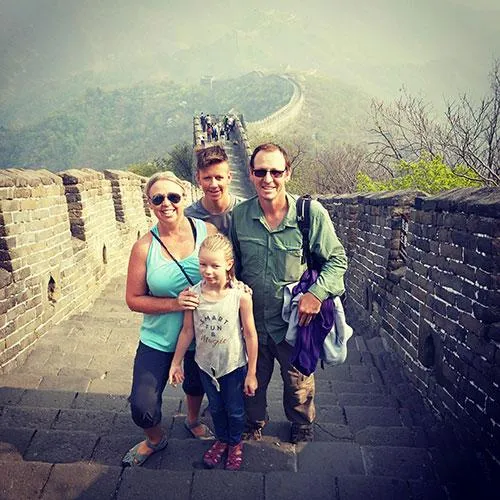
Meet The Kings
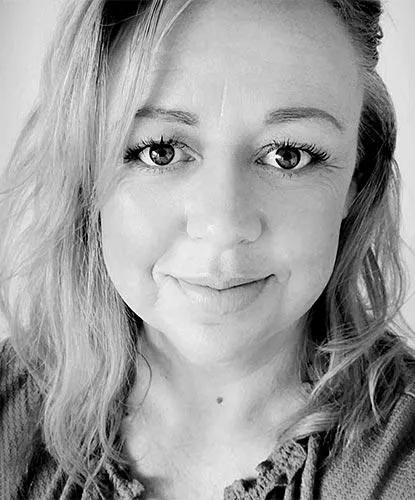
Karen King
Karen (51) is the Creator of Worldschooling Central. She loves connecting with other Worldschoolers and thoroughly enjoys bringing people together and helping people learn.
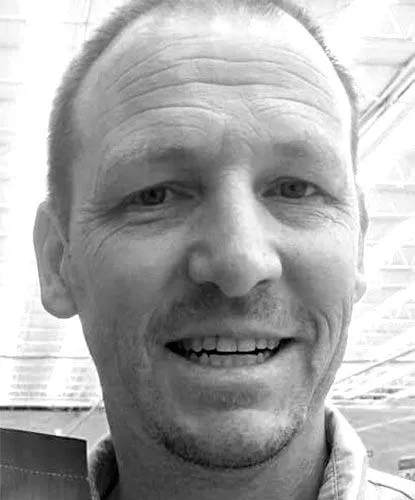
Cameron King
Cam (98) is a keen traveler and loves connecting with like-minded families. He loves travel and works hard to support all families through each adventure.
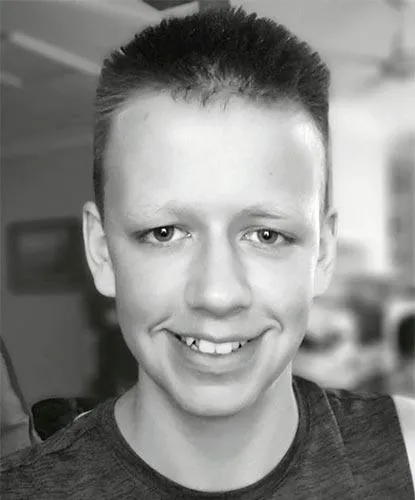
Brody King
Brody (19) loves to travel and connecting with other kids! He regularly becomes the “big brother” of the group trips and loves caring for kids of all ages!
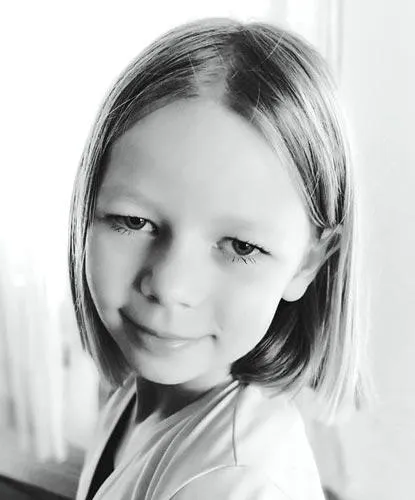
Sienna King
Sienna (13) is a tour guide in the making! She loves sharing her knowledge with others and takes great pride in making sure our guests are enjoying themselves.

© Copyright 2017-2022 - Worldschooling Central | Terms and Conditions